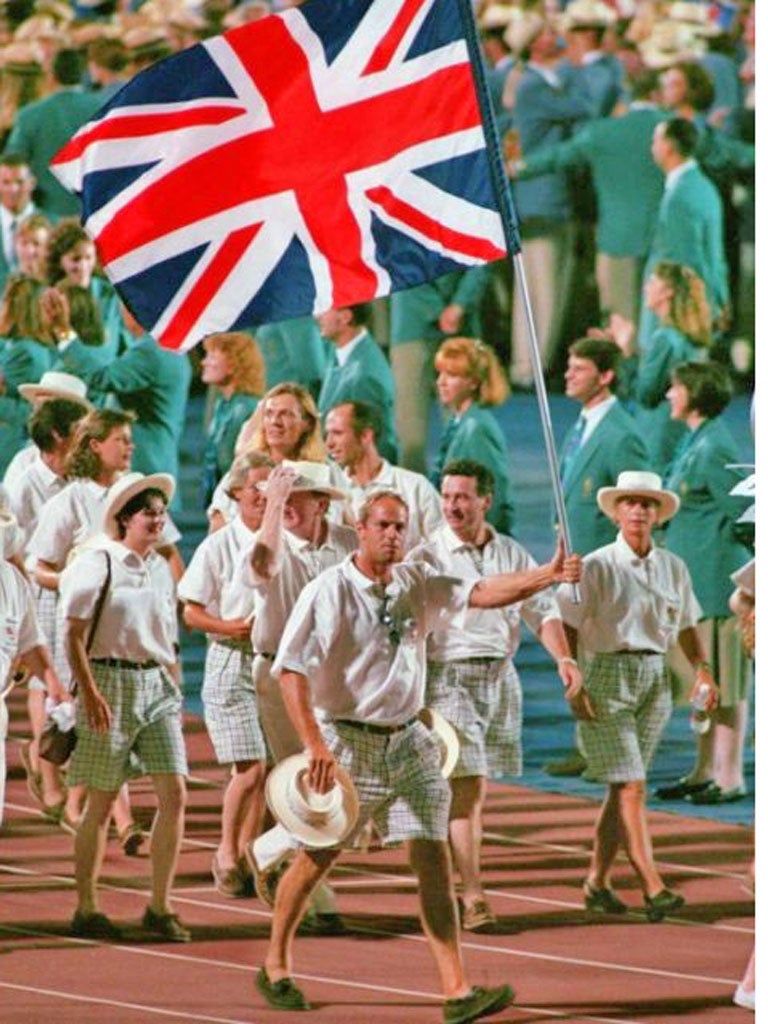Chris Hewett: Steve Redgrave the same class act on the airwaves as he was on the water
Critic without a ticket: Britain's finest Olympian has an anti-BS antenna and is incapable of not telling it like it is

Watching the mid-morning rowing from the questionable comfort of a hard chair in the accident and emergency department of a Bristol hospital – please don't ask, even if your interest in the insect life of northern Tanzania, and the potential consequences of being bitten by some or all of it, is driven by heartfelt sympathy rather than a highly developed sense of schadenfreude – the realisation dawned that one of the most accomplished British sportsmen of the modern era could, had he made a wiser decision at a very important moment in his life, have turned himself into another Steve Redgrave.
This is not to suggest that Martin Johnson, the beetle-browed and darkly intimidating second-row forward from the English Midlands who led his nation's rugby team to a first world title, could have been a high-class oarsman, but some other union players might well have cut a dash in a boat.
Dave Reddin, the cutting-edge conditioning coach who made such a significant contribution to that rugby triumph in Sydney, thought that another tight forward of Johnson's generation, Danny Grewcock, would have been a natural on the water, for one.
Likewise, if the Olympic selectors had chosen the Wasps scrum for the men's eight, a gold medal would have been assured – in last season's Premiership campaign, it was difficult to imagine any octet anywhere in Christendom travelling backwards faster, or in greater unison, than the Londoners' pack.
As Johnson never did backwards – not a single inch, let alone 2,000 metres – rowing would have been too counter-intuitive: if he had felt reverse gear coming on, he would probably have smacked someone on the skull with his scull. But he might, had he chosen to explore this particular avenue, been every bit as compelling a broadcasting analyst as the finest Olympian ever to emerge from these islands. Like Redgrave, he knew – still knows – more about his chosen activity than 99.9 per cent of top-class practitioners; like Redgrave, he had – still has, in all likelihood – a fully functioning anti-BS antenna protecting him against any descent into dewy-eyed romanticism. Two masters of their sports, neither of them natural comedians but both congenitally incapable of not telling it how it is.
Quite why Johnson, not obviously in need of a highly paid job, flew in the face of his own instincts by taking on a role – the England managership – that he was wholly unqualified to perform, rather than position himself as the sage of the rugby airwaves, remains a mystery. Maybe we will never learn the truth of it, for the man has gone to ground since resigning before Christmas and is still, according to one or two Leicester lags, licking his many wounds. How sad. Life could have been so much more rewarding.
Still, that was yesterday. Or rather, many days before yesterday. Yesterday, the five-time Olympic champion Redgrave could be seen on the banks of Eton Dorney (which looks quite stunningly beautiful from all angles, even when seen from a small room full of people in various degrees of orthopaedic distress). Once again, he said what needed to be said and found the best way of saying it, honouring the exceptional record-breaking efforts of Katherine Grainger and Anna Watkins in the double sculls as readily and informatively as he had dismissed the medal chances of other crews at the start of the regatta.
Compare this with the radio commentary on the women's quadruple sculls repêchage, in which Alan Green and the 2004 Olympic champion James Cracknell spent the best part of five minutes rubbishing the chances of Debbie Flood (top name for a rower) and her colleagues reaching the final before treating listeners to a command performance of synchronised astonishment, complete with a high-tariff three and a half verbal twists, when the quartet did just that.
Talking of synchronisation, or lack of it, there was an interesting reaction to the calamitous fourth-round dive of every mother's son, aka Tom Daley, and Pete Waterfield at the Aquatic Centre. "I don't know what to say," remarked the resident expert Leon Taylor, who finished just out of the medals with Waterfield at the 2000 Sydney Games.
This was not terribly helpful: knowing what to say, especially in relation to human activities as peculiar as synchro diving, is generally considered to be a fundamental element of sports commentary. Yet on this occasion, the hand of forgiveness could be extended. The dive was so bad that no explanation was required.
If the result left Daley with his budgie-smugglers round his ankles, it will not lower his profile to the same degree. He is 18 now: old enough, under normal circumstances, to have left the Little Jimmy Osmond image a long way behind him. But child stars take an awfully long time to grow up in the public imagination – Natalie Portman wore even less than Daley did yesterday when she appeared in the film Closer, but is still spoken of in some quarters as if she is still in school. Whatever world these people inhabit, it is not a normal one.
As long as Daley remains fresh-faced and ultra-polite and dirt-free – a state that could last some time: one BBC pundit described him as a "robot" who has had his individuality media-trained clean out of him – Middle England will continue to love him. But that will not make him a Redgrave of the diving board, not by a long chalk.
Join our commenting forum
Join thought-provoking conversations, follow other Independent readers and see their replies
Comments
Bookmark popover
Removed from bookmarks